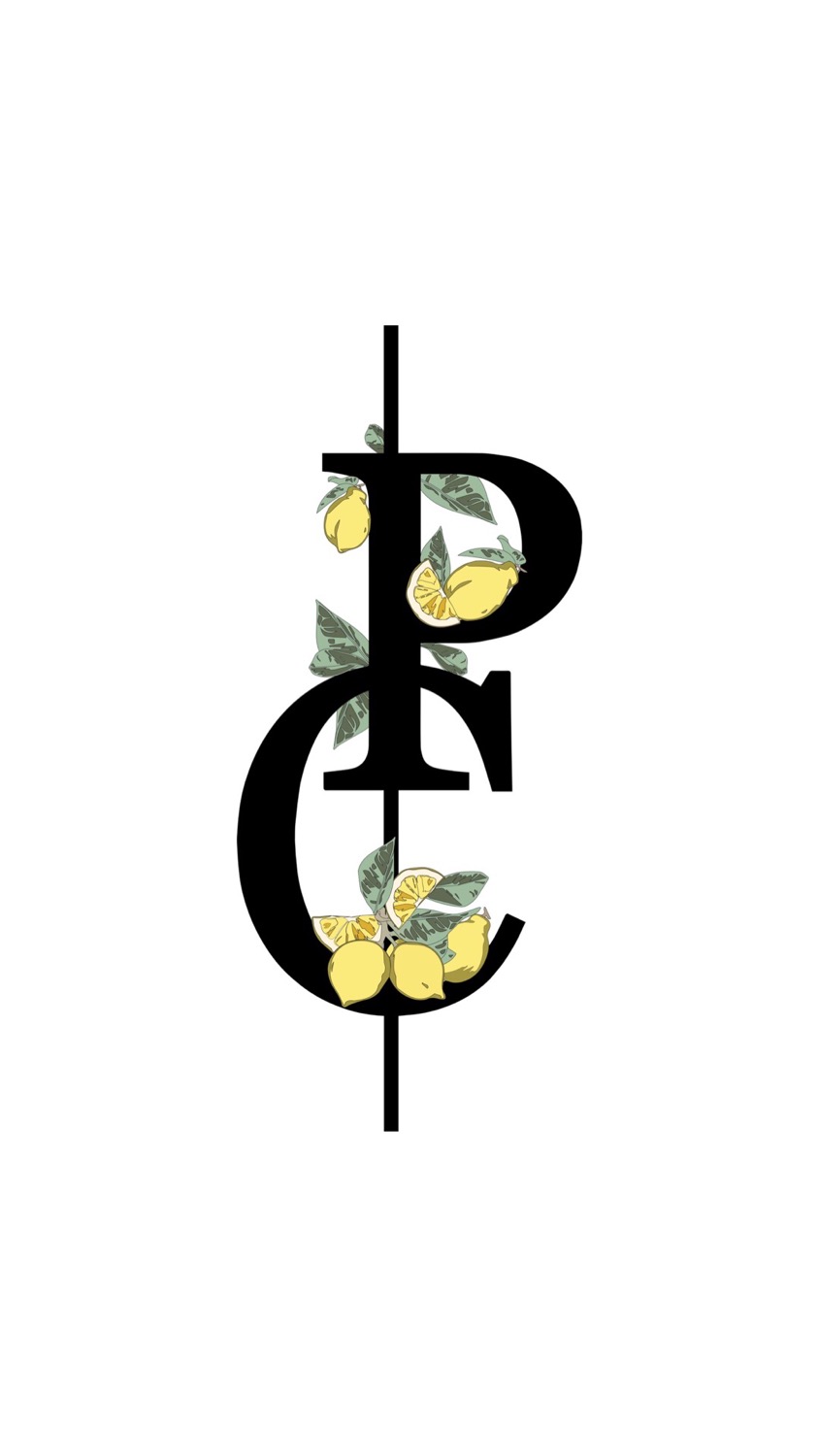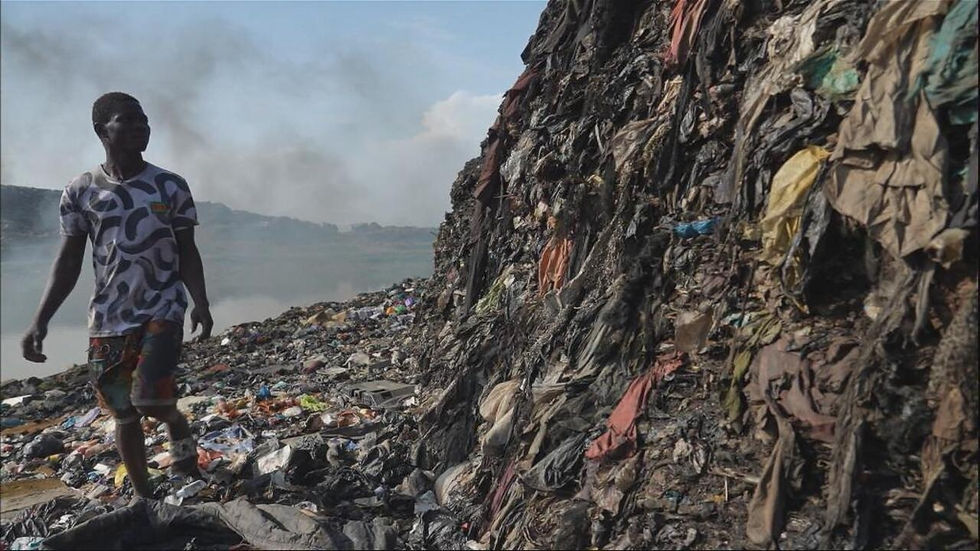If the wrinkle is beautiful, because the patch cannot be so too
- Paola Cano
- Jul 25, 2021
- 4 min read
"I want my clothes to be recognized for their quality and to be produced in a sustainable way"
Since she finished her career, Paola Cano from ejido decided to focus her career as a designer on sustainable fashion, with which she identifies
Nowadays, 400 percent more clothes are produced than twenty years ago, 80 billion garments are produced each year and each person generates 35 kilos of textile waste each year, but they are not the only data that demonstrate the importance of getting on the bandwagon of sustainable fashion.
There are also impressive figures such as the 1.5 trillion liters of fresh water used each year by the fashion industry or the 2.6 percent of the planet's fresh water is used in cotton production, while that 750 million people do not have access to drinking water.

These are some numbers that the ejidense designer Paola Cano puts on the table and with which she invites us to reflect.
Cano began his design studies in 2011 at the Almería School of Art, where he did the Higher Degree in Clothing Modeling, which he finished in 2013, and continued at the Granada School of Art, pursuing a career in Fashion Design, which ended in 2018. Since then, she has been looking for ideas and methods that allow her to develop her own sustainable fashion project.
"My goal is to carry out a project in which I can feel comfortable and identified without consequences," highlights this young woman from ejido whose goal is for her brand to "be recognized for a product of quality and durability, produced in an ethical and sustainable way. In addition to living from what I really like, which is fashion.
To do this, she tries to use products that are totally organic, whether of animal or plant origin. And it is that as she admits, no matter how much she wants to know the origin of a material, "it is practically impossible to make an exhaustive trace of all the processes, even if there are certifications that endorse it," says Cano.
Likewise, the designer also underlines the importance of taking into account the treatment of the fibers, "not only the material, but also that the dyes do not contain toxic elements or harmful to health when in contact with the skin."
In this sense, Paola Cano points out that «the fashion industry is the second most polluting sector in the world, which implies an infinity of waste, water pollution, desertification and soil contamination, overexploitation, animal abuse or genetically modified organisms, among others". And it is that a kilo of conventional textile contains a kilo of chemical products, while she also points out that 80 percent of leather contains chromium.
Thus, Paola Cano recycles everything that she can and sees. “A designer said that the wrinkle was beautiful, why can't a patch also be so”, she wonders, while she stresses that “worn out pants are bought and we throw away the ones that have been torn. It has no logic at all.
In this way, she serves her clients with an average profile between 20 and 35 years old, so that her clothes are not thrown away. “A knitted garment with a tear can be repaired and a T-shirt can be darned or embroidered. You just have to see things from another point of view, "she says.
In addition, she also spends part of her time looking for new methods “to further reduce our personal and business impact. I look for quality in my garments and we give a second life to materials that have been discarded.
A type of fashion that she considers to have more and more followers. "There are many people who already prefer to pay more for higher quality clothing, especially young people, and who want to contribute a grain of sand and look for an alternative to the conventional" and that can be found on their website paolacano.es or on their workshop in Dalías.

A reforestation project starts in the Sierra de Gádor
One of the objectives of this ejidense designer is to also contribute to the improvement of her environment. That is why two years ago she promoted a reforestation project with which to try to alleviate the emissions produced with her creations.
"The idea of reforestation is designed so that everyone collaborates in this project, in which each client feels identified individually and that when a product is bought, they contribute with the planting of one tree or several", he explains. Cano, who emphasizes that "reforesting is not only offsetting the carbon footprint, because the leaves and roots help reduce soil erosion, while the trees help make the years rainier."
However, Paola Cano does not calculate her carbon footprint, but she actually sows everything she can afford.
"We also have to take into account that we live in a semi-desert area where every year the summers are drier and harsher, so we have to carry out regular maintenance of the plantation, to which we dedicate part of our free time."
The next planting will take place in autumn, while in February-March, which is the ideal time for transplantation, a new planting and repopulation of those that have not survived from the previous year will be carried out.
So far they have only carried out one plantation in the Paraje de las Zanjas, in the Sierra de Gádor, in Dalías, with the authorization of the Dalías City Council and the collaboration of the rural patrol, neighbors and friends.
“The location, without a doubt, will be the same or close to focus our efforts on a specific place”, points out Paola Cano, who adds that “the proximity also helps care and supervision. We will expand as much as possible.
Thus, she gives the option to her clients to participate directly in the plantation and if not she is the one to carry it out. "When the reforestation period begins, all clients will be informed and can go and plant them themselves if they wish."
In fact, and as explained by the ejidense designer, “the idea, if the business prospers and works, would be to take this to other provinces and transfer these actions to the points of sale. They would be in charge of reforestation work in their localities ”.






Comments